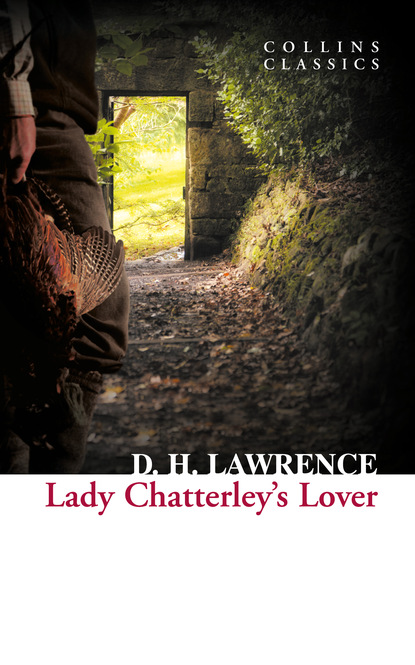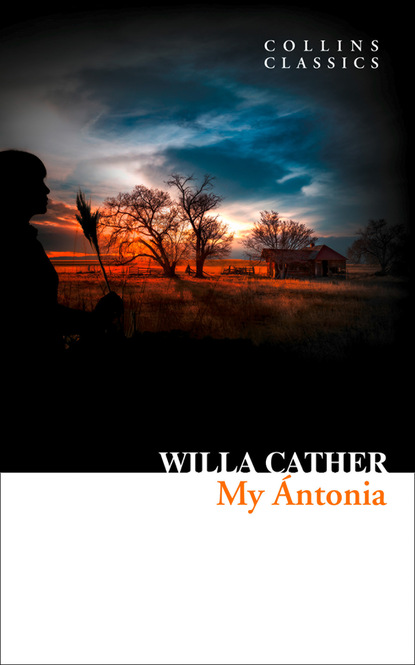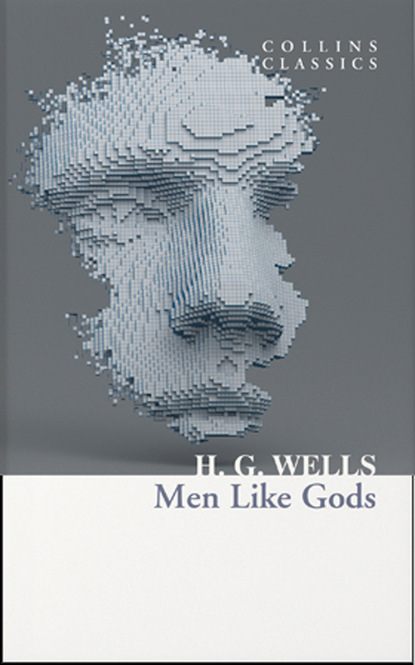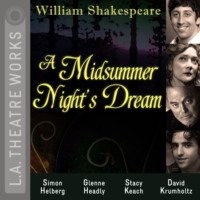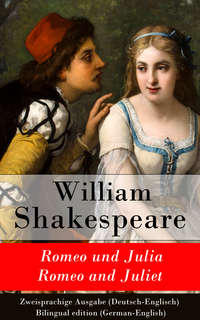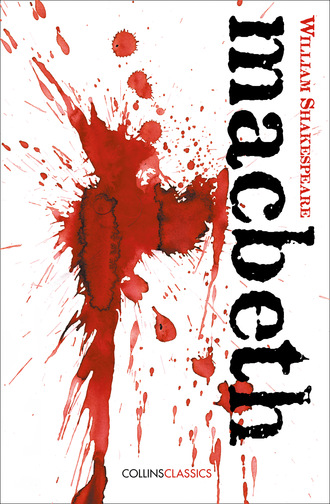
Полная версия
Macbeth
The ‘decent’ men We are introduced to a number of Scotsmen – the bleeding Sergeant, the king’s sons, Malcolm and Donalbain, Lennox, Ross, Banquo and Angus – who serve their king and country as well as they can. Under good leadership they are faithful and useful. They react in various ways to the kingship of the ruthless Macbeth.
The strongholds Much of the action takes place in the Scottish castles of Inverness, Forres, Dunsinane and Fife. These grim, grey containers of human turmoil provide effective settings for the deeds done. We are frequently reminded of their walls, battlements and heavy gates. The principal murders take place in or near them. Such deeds are partly hidden by their walls, or by darkness, or by both.
The weather The play starts with thunder, lightning, fog and filthy air; there is a moment of serene summer (seen through Duncan’s innocent eyes), followed by a brooding, overcast night, breaking into unprecedented tempest (the night of the first murder). The evening of the banquet is also calm, but with the prospect of rain. Banquo dies and, soon after, the Macduff family is destroyed. During the rest of the play there is no direct description of the weather. The disturbances seem to reflect not only Scotland’s time of trial but also the upheaval in Macbeth’s mind. For most of the last two acts he is settled in and almost resigned to his own evil.
Scotland and England Scotland, suffering under Macbeth’s tyranny, and England, an idyllic country under the saintly King Edward the Confessor, are vividly contrasted. But the essence of the contrast is not in any Scottish inferiority; rather, it is Scotland’s sheer misfortune to have such an inexplicably evil ruler as Macbeth, and England’s simple duty to help to destroy him.
Apparitions Apart from the witches themselves, there are several possibly supernatural elements in the play: the air-drawn dagger which Macbeth saw before he killed Duncan (though this might well have been the product of his own feverish imagination), the ghost of Banquo, and the things the witches conjure up for Macbeth’s inspection at the beginning of Act IV. As a member of a modern audience, how would you explain these visions? Are they an embarrassment, or do they add to the horrible reality of the story?
The words of the play Finally, as you go through the play, it should be stimulating to notice how Shakespeare uses words to gain his effects. Unfortunately there are many words and phrases which require explanation to twentieth century readers (which is why notes are provided), but a little thought and imagination can make a great deal clear. The verse rhythms, the images, the descriptive words, even the punning and other forms of word-play, all add to the main impression: this is a tale of human evil and human goodness much of which appeals directly to us today.
After this brief outline of the main features of Macbeth we shall look more closely and intently at its constituent parts and examine the contribution each makes to the whole effect. After this analysis of the ingredients of the play, the ‘Summing Up’ (page 247) will attempt to put things together again and leave you better equipped to explore the play for yourself.
The Language of the Play
It has already been said that many Shakespearean words and phrases require explanation to twentieth century readers and play-goers. It is not at all surprising that a play written nearly four hundred years ago should present problems of understanding. Living languages are always changing and developing. Another difficulty is that playwrights have always interested and amused audiences by making topical references. An Elizabethan audience would have instantly recognized a mention of the Spanish Armada, or something relating to the contemporary troubles in Ireland, which people in a twentieth century theatre might not even notice. Although it must be said that much of what is most important ‘gets across’ quite readily, we can all gain more from a Shakespeare play by deepening our understanding of the text. But, however conscientiously readers follow any textual notes, they will only be adding to their comprehension of words and phrases. There is a broader strategy at work in Shakespeare’s use of language that notes can only hint at. For example, the linguistic style often varies to suit the mood of the moment or the personality of the speaker. Macbeth begins with a heavy, menacing rhythm, a kind of incantation by the witches:
Fair is foul, and foul is fair:
Hover through the fog and filthy air
(Act 1, Scene i, lines 12–13)
which breaks off suddenly and is replaced by a passage full of long, involved sentences of description and explanation. The wounded Sergeant tries to convey in detail to his king the reality of a terrible battle, and the almost superhuman impression that Macbeth’s quality of fighting has made upon him. The Sergeant’s account falters, he breaks off, exhausted, and the scene ends with a mixture of long, rolling lines and short, exclamatory ones. The news seems good: The victory fell on us (Act 1, Scene iii, line 59) says Ross, but the news of Cawdor’s treachery is dismaying and the rhythms hint at confusion, not resolution. Ambiguous notes have been struck which condition our responses to what follows. As the play goes on, more doubts arise, and motives become obscure: these abstractions are reflected in the language. Macbeth and Lady Macbeth, when talking to themselves or to each other, are generally clear and direct in style:
Lady Macbeth:
Yet do I fear thy nature;
It is too full o’ th’ milk of human kindness
To catch the nearest way
(Act 1, Scene v, lines 15–17)
and
Macbeth:
He’s here in double trust:’
First, as I am his kinsman and his subject…
(Act 1, Scene vii, lines 12–13
Both of them, however, adopt a flamboyant, almost unctuous manner when they want to conceal their true feelings and intentions.
All our service
In every point twice done, and then done double,
Were poor and single business to contend
Against those honours deep and broad wherewith
Your Majesty loads our house;
(Act 1, Scene vi, lines 14–18)
says Lady Macbeth to Duncan, with murder in her mind, when welcoming him to the castle at Inverness. Her husband outdoes her in fulsome language, just after he has killed Duncan:
Here lay Duncan,
His silver skin lac’d with his golden blood;
And his gash’d stabs look’d like a breach in nature
For ruin’s wasteful entrance
(Act II, Scene iii, lines 111–14)
He goes on in such extravagant terms that (some critics suggest) Lady Macbeth has to pretend to faint in order to shut him up. Duncan and Banquo are almost the only characters whose true feelings are regularly reflected in their words. Even among some of those who represent the forces of goodness and truth, language is sometimes used to hide feelings rather than to express them. In the mysterious Act IV, Scene iii, Malcolm, who is to prove the saviour of Scotland, pours out hundreds of words of self-description, most of which he contradicts a little later on (I…unspeak mine own detraction).
By Act V, clarity and directness have returned. Lady Macbeth, in her madness, speaks the simple words of truth:
Yet who would have thought the old man to have had
so much blood in him?
(Act V, Scene i, lines 35–7)
Macbeth himself, face to face with ultimate reality, no longer has any need for words as disguises:
…that which should accompany old age,
As honour, lover obedience, troops of friends,
I must not look to have.
(Act V, Scene in, lines 24–6)
So, although it is apparent that language in this play frequently reflects the moods and characters of the speakers, it often does so in subtle ways. In addition, deeper and wider impressions are being evoked, so that the language of the play throughout reflects its underlying ideas: the onset of evil fostered in human souls, doubt and insecurity (represented in ambiguous words) and finally the triumph of truth and justice. Some further suggestions are made in the Theme Index (page 214) about the use of particular words by which these wide-ranging impressions are conveyed.
Plot
The story of the play may be set down in the following matter-of-fact way:
ACT I
A note of doubt and confusion is struck by three witches in the first scene. They refer to a battle that is not yet concluded; they plan to meet Macbeth, one of the Scottish generals, in a deserted place, at the end of the day’s fighting. This is followed by a scene in which Duncan, King of Scotland, hears an interim report on the battle between the rebels (Macdonwald and the Thane of Cawdor) together with an army of Norwegian invaders, and the loyal Scottish forces led by Macbeth and Banquo. A wounded Sergeant describes a ferocious fight in which both Macbeth and Banquo are acquitting themselves with tremendous skill and determination. Ross, another Scottish lord, comes in to announce victory. King Duncan orders the execution of Cawdor and the honouring of Macbeth with the traitor’s title.
The witches meet Macbeth as they had planned. Banquo, who is with him, addresses the witches with suspicion, seeing them as probably evil. Macbeth says little, but seems prepared to listen to them. They greet him as Thane of Glamis (his correct title), Thane of Cawdor (a title which, by now, is his, but he doesn’t know it), and future king. Banquo notices that Macbeth reacts to what the witches say with apparent fear. He orders the witches to make some announcement about his future, too; they respond by telling his fortune in riddles. In particular, they say that he is to be the ancestor of kings, though not a king himself. The witches disappear, leaving the two men, bewildered, repeating the prophecies. Ross arrives to announce Macbeth’s new title of Thane of Cawdor. Macbeth’s thoughts turn at once to the possibility of being king, while Banquo shows again that he deeply distrusts the witches. (What, can the devil speak true?) Before the end of the scene Macbeth is already contemplating the murder of Duncan, though hoping that the final prophecy may come true without any action on his part.
In Scene iv, at the royal palace at Forres, King Duncan and Macbeth face each other. The former is warm, friendly, grateful for his general’s services; the latter superficially responsive and dutiful Duncan proclaims his son Malcolm as his heir. This leaves Macbeth almost committed to the murder of Duncan, but well aware of the nature of what he contemplates (he refers to his black and deep desires). In Scene v, Lady Macbeth makes her first appearance. She is reading a letter she has just received from Macbeth in which he tells her about the witches’ prophecies, and the speedy fulfilment of part of them. Lady Macbeth immediately determines that he shall be king, by whatever means may be necessary. She thinks he may be too good-natured to catch the nearest way (that is, to kill Duncan), but she feels confident that she can persuade him to do it. Fate seems to be on her side when a messenger enters to say that Duncan is on his way to honour them with a visit. In a speech in which she reveals much of her character (The raven himself is hoarse…, lines 38–54), she acknowledges her natural womanly feelings but appeals to the powers of darkness to make her cruelly resolute. Macbeth arrives and his wife makes it clear that she expects him to kill Duncan that night. He makes no clear response. Duncan and his court come to Inverness Castle and are greeted effusively by Lady Macbeth but, significantly, not by Macbeth himself.
In the final scene of the first Act, Macbeth struggles with his ambition and his conscience. He has left the banquet hall where the king is dining to try to work things out on his own. He knows that Duncan is a good king, and is clear that nothing but selfish ambition is pressing him towards a terrible crime. He has just concluded that the plan is a wicked one and that he will abandon it, when his wife appears and attacks him viciously and determinedly at his weakest point – his pride in his own courage and manliness. She accuses him of cowardice, and of not loving her. She follows this up with an appalling demonstration that she is willing to go to any lengths herself, declaring that she would dash her own baby to the ground rather than go back on her word. She outlines a plan of action. Macbeth is persuaded, though he is dreadfully aware of the wickedness of what they plan to do.
ACT II
Banquo, as well as Macbeth, seems to be plagued by disturbing thoughts and temptations, but when Macbeth suggests that they should meet to discuss the witches’ prophecies Banquo stresses that he will do nothing dishonourable. Left alone, in another agonized soliloquy (Is this a dagger which I see before me…?) Macbeth shows how deeply disturbed he is by the crime he is now committed to. He hears the bell, struck by Lady Macbeth, which is the signal for him to act; she has done her part by giving Duncan’s servants drink, to make them sleepy. She hears Macbeth shout, and thinks that he has failed to kill the king, but he comes in saying that he has ‘done the deed’.
He seems shattered, and she has to stop him thinking about the crime and his lost honour. As before, she uses the weapon of scorn against him, but this time it does not work. He cannot bring himself to return to the king’s room with the bloody daggers which he should have left there. She goes instead and smears the servants with blood. A thunderous knocking is heard. Macbeth is obsessed with the horror of Duncan’s blood on his hands; Lady Macbeth, on the contrary, whose hands are now also red, dismisses it as unimportant (A little water clears us of this deed).
The porter of the castle is roused at last from his drunken sleep by the knocking. He staggers to the door of the castle to let in Macduff and Lennox, who have come to wake the king. Macbeth comes to see them, pretending that he has only just been awakened himself, and escorts Macduff to the king’s apartment. After Lennox has commented on the wild weather, Macduff re-enters, so appalled that he can hardly say what he has seen. All the thanes and and the two princes, Malcolm and Donalbain, are roused. Lennox, Ross and Macbeth go back to the king’s room, where Macbeth kills the two servants who are covered in blood. Soon afterwards Lennox blames these servants for the murder, but Macduff seems to have some doubts, since he asks Macbeth why he killed them. Macbeth begins to explain in an elaborate, overwrought manner and Lady Macbeth either faints or pretends to do so. Malcolm and Donalbain, who have hardly had time to feel anything except fear, decide to go away. Malcolm’s words suggest that he already suspects Macbeth.
The final scene in the Act presents a picture of total disorder in the natural world, reflecting the chaos in human society. An old man describes bizarre events. Macduff says that Malcolm and Donalbain, because they have fled, are suspected of paying the servants to kill Duncan, their father. He also says that Macbeth has been named as the new king; he is shortly to be crowned at Scone.
ACT III
Banquo clearly suspects that Macbeth has become king by foul means. Macbeth invites Banquo to a feast, and goes on to extract information from him about his planned movements in the afternoon. Because he is deeply concerned about the witches’ prophecy that Banquo is to be the ancestor of kings, Macbeth is plotting to kill his comrade. As soon as he has said farewell to Banquo (God be with you!) he meets two murderers whom, with a strange mixture of lies, temptations, insults and compliments, he persuades to intercept Banquo as he returns towards the castle and kill him. Lady Macbeth tries to comfort her husband, who is full of gloom and fear but is not taking her into his confidence. He hints that he is arranging the removal of Banquo, the most obvious obstacle to his peace of mind. The murderers succeed in killing Banquo but, significantly, Fleance his son escapes.
While the banquet proceeds, the murderers tell Macbeth what has happened; he sinks again into gloom. Banquo’s ghost enters and sits in Macbeth’s seat. Macbeth, shaken with guilt and horror, creates a sensation among the guests and Lady Macbeth has to pretend that he often has such fits, which soon pass. The ghost disappears temporarily and Macbeth seems to recover, but when he proposes a toast to Banquo the ghost returns and Macbeth behaves like a madman. Lady Macbeth, worried that her husband will soon reveal his terrible secrets, ushers out the guests. Macbeth resolves to visit the witches and find out what his future holds. At the same time he contemplates even more frightful crimes (Strange things I have in head that will to hand).
After a brief and not very important scene in which Hecate, the witches’ goddess, appears, two of the Scottish lords make it quite clear to each other that they strongly suspect Macbeth of the two murders. They reveal that Macduff has gone to the court of Edward the Confessor of England (where Malcolm, Duncan’s son, is living) to beg his military assistance in opposing Macbeth.
ACT IV
Macbeth visits the witches who conjure up, first, a helmeted head; next, a bloody child; and then a crowned child with a tree in his hand. The first apparition warns him to beware of Macduff; the second says that no man born of woman can harm him; and the third informs him that he will never be defeated until Birnam Wood moves towards his castle at Dusinane. Macbeth is encouraged by the second and third prophecies but insists on putting a question to the supernatural powers about Banquo’s descendants: will they ever rule Scotland? In answer he is shown a line of eight kings, accom-panied by Banquo, whom they all resemble; the last king holds a mirror in which still more Banquo-like kings are visible. Immediately after this, news comes that Macduff has fled to, England. Macbeth plans to attack his castle and slaughter his wife and entire family. In the next scene Lady Macduff has just been told by Ross that her husband has gone to England. She is angry and contemptuous of her husband and tells her small son that his father is dead. After a messenger has warned them that they are in danger, murderers sent by Macbeth enter and stab the son. We learn later that the whole family has been killed.
The scene switches to the English, court where Malcolm and Macduff have a long and strange conversation. Macduff is urging Malcolm to return to Scotland to attempt to destroy Macbeth, but Malcolm is suspicious: he thinks Macduff (on Macbeth’s behalf) may be trying to lure him back to Scotland. He tests Macduff by describing himself as a thoroughly wicked man, totally unsuited to be king in Macbeth’s place. He wants to see if Macduff will go on encouraging him beyond all reasonable limits, in which case he will know that he is being deceived. Up to a point Macduff accepts Malcolm’s supposed vices, but eventually he despairs, says Malcolm is not even fit to live, let alone govern Scotland, and prepares to leave. This convinces Malcolm that Macduff is honest. When a doctor suddenly appears to tell them that King Edward is about to cure sick people by the laying on of hands, a new note of hope is introduced (the implication is that he will help Malcolm cure the social and political sickness in Scotland). Malcolm and Macduff are reconciled. Ross comes from Scotland with the appalling news of the destruction of Macduff’s family and, after cursing himself for neglecting them, Macduff determines to seek revenge. The English army under Siward is ready and Malcolm, Macduff and Ross prepare to march northward.
ACT V
The last Act begins with talk between a doctor and a gentlewoman about the serious illness of Lady Macbeth. We are told that she is in the habit of sleepwalking in a state of great agitation. She says things that seem to incriminate herself and her husband. Then Lady Macbeth herself enters with a lighted taper and the doctor prepares to record what she says. She appears to be washing her hands, and, in a fragmentary way, gives details of the murder of Duncan. She also refers to the killing of Lady Macduff and of Banquo. The watchers express their horror at the significance of what she has said.
A Scottish army is about to combine with the English forces under Malcolm and Siward, and attack Macbeth at Dunsinane. In Scene iii, Macbeth declares his desperate trust in the statements of the witches’ apparitions: Birnam Wood cannot possibly move, and all men are born of women. Soon after this he is brought news of the approach of an army of ten thousand men; he sinks temporarily into a state of despair, seeing his own life as near its end. The doctor tells him that there is no change in Lady Macbeth’s state. Macbeth rouses himself and prepares for battle.
The combined army halts near Birnam Wood and Malcolm gives orders for the soldiers to camouflage themselves with leafy boughs cut from the trees. In Dusinane Castle Lady Macbeth’s death is announced and Macbeth reacts by commenting on the meaninglessness of life. A messenger tells him that Birnam Wood is moving towards them. Macbeth flies into an almost insane rage, then lapses into weary resignation, and finally determines to die fighting. Two brief scenes follow (vii and viii) in which the battle is presented. Macbeth is still half-depending on the statement that he cannot be killed by any man ‘of woman born’ and, when he kills young Siward, is re-encouraged. He encounters the angry Macduff, who tells him that he was born by Caesarian section (i.e. cut from his mother’s body). The last of the supernatural assurances is shown to be a deception. Macbeth refuses to fight Macduff and then, after all, decides to rely on his own strength and courage. They go off fighting. Soon afterwards Macduff returns with Macbeth’s severed head. Malcolm ends the play by heralding a new era for his kingdom of Scotland.
Characterization
Even in such a prosaic summary of the plot, attitudes and relationships in the war between good and evil have to be presented and to some extent explained. In the process, certain characters stand out. It has often been said that Shakespeare’s supreme achievement is in the depth and range of the characters he creates – that he constantly presents us with totally credible individuals. In most of his plays, certainly, the characters ‘ring true’. Some of them are profound and convincing portraits, ‘psychologically accurate’, to use a familiar modern phrase. Shakespeare seems to have succeeded in creating people. He is assisted, of course, by the fact that we usually meet these characters as they are embodied by skilful actors and actresses. We watch a human being in the part, speaking the lines, frowning, moving, gesticulating. Gradually the illusion takes a grip upon us, our imaginations take over (guided by the imagination of the playwright) and we react for a time as though we are watching and listening to real people living their own real lives. In Macbeth there are certainly two characters who are presented skilfully, imaginatively and fully enough to have this effect upon us from the stage and, indeed, even from the pages of a book: Macbeth and Lady Macbeth. A good deal has been said about them in this introduction already, but it may be helpful to say a little more. It has been pointed out that the play is one battle in the universal war of good and evil, and that the battle is not between thoroughly bad people and thoroughly good ones. Notwithstanding, by the middle of the play, Macbeth and his wife epitomize the evil which is feared and hated by almost everyone else and, by the end, it is virtually Macbeth versus the rest. The battle also goes on within the two chief characters. There is some danger of seeing them as figures in a sensational horror, story, but close attention dispels this tendency. We have to believe Lady Macbeth when she says that her husband is full o’ th’ milk of human kindness when we listen to what he says. No-one expresses the positive side of human nature more truly, from Macbeth’s early comments on Duncan:


